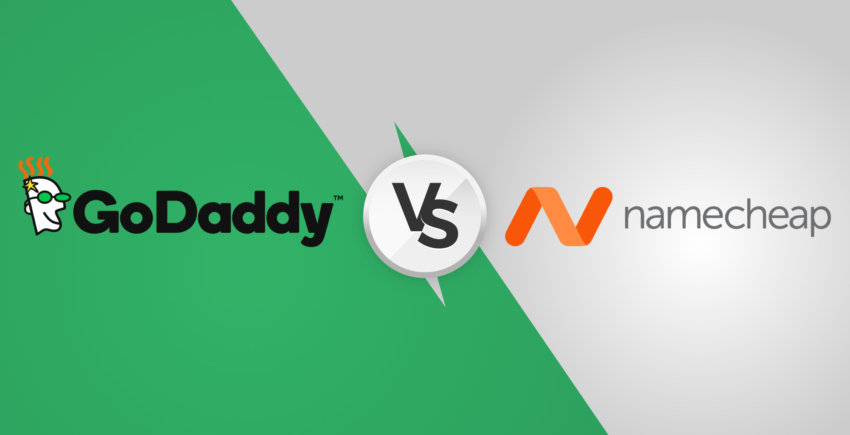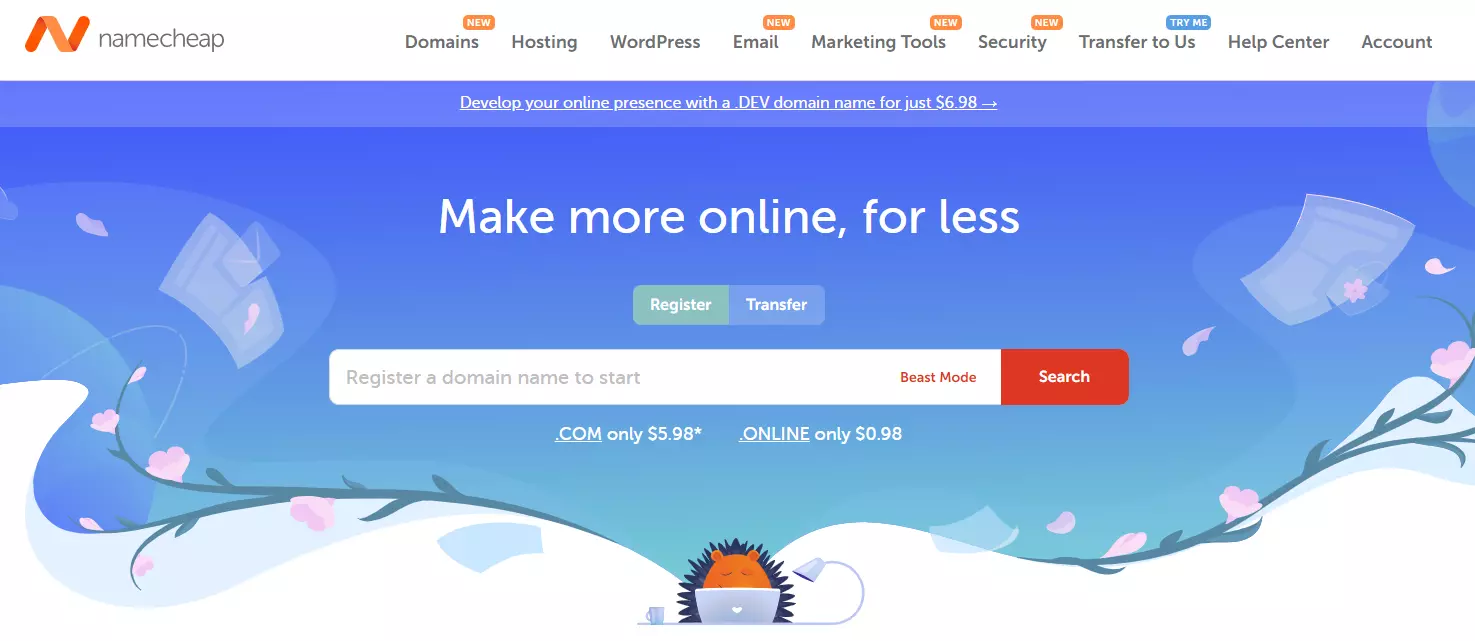
If you have any familiarity with web hosting, chances are you've encountered the names Namecheap and GoDaddy.
These powerhouse companies are formidable contenders in the realm of basic shared hosting. But which one is better?
We've meticulously compared Namecheap vs GoDaddy so that you can determine which company best suits your business hosting requirements.
What is Namecheap?

Established in 2000, Namecheap has emerged as a frontrunner in budget-friendly domain names and web hosting solutions. Presently, the company oversees a portfolio of over 16 million domains and furnishes hosting packages featuring unmetered bandwidth and complimentary site migration.
One distinctive feature is its provision of 30 domain-based mailboxes within the base plan—a rarity as most providers typically charge extra for such a quantity of email addresses.
What is GoDaddy?

Conversely, GoDaddy is a larger entity, managing more than 84 million domain names for 20 million clients. Nevertheless, it maintains a customer-centric approach with round-the-clock support—ideal for situations where your site encounters issues at odd hours and immediate assistance is imperative.
Its website builder serves as a significant asset, particularly for individuals lacking coding expertise, as it enables precise customization through a user-friendly drag-and-drop interface.
Namecheap Vs GoDaddy: 3 Factors Compared
In this section, we'll assess Namecheap and GoDaddy across three key criteria, with a primary emphasis on their web hosting services, as this constitutes the cornerstone of their offerings.
1. Domain Registration and Web Hosting Services
Initially, Namecheap focused solely on domain registration. However, as time progressed, they expanded their offerings to include various web hosting solutions, aiming to establish a presence in that sector of the market.
Presently, Namecheap provides a diverse array of services beyond domain registrations. Users can utilize the platform to explore the WHOIS database, configure custom Domain Name Server (DNS) settings, register decentralized domains, and more.
Regarding web services, Namecheap offers a versatile array of hosting options. The company offers shared hosting, dedicated hosting, virtual private server (VPS) plans, reseller options, and additional services. It also features managed WordPress hosting plans under the EasyWP umbrella.
Conversely, GoDaddy primarily functions as a web host but also extends a wide range of domain registration services and associated features. Users can utilize GoDaddy to register domains, engage in auctions for premium names, obtain domain appraisals, and more.
In terms of web hosting, GoDaddy likewise covers various aspects. It provides shared hosting, VPS hosting, and dedicated plans. Similar to Namecheap, GoDaddy also offers managed WordPress hosting options and plans specifically tailored for WooCommerce.
2. Ease of Use and Website Builders
Namecheap boasts a highly intuitive dashboard that facilitates the management of all its services, streamlining the process of signing up for hosting plans and commencing work on your website.
However, one notable drawback of Namecheap is its lack of a custom page builder, necessitating alternative solutions for those seeking to construct a website without delving into coding.
Nevertheless, this limitation is mitigated when utilizing Namecheap's managed WordPress hosting plans, as they grant access to the Block Editor. Similarly, the same applies to GoDaddy and its managed WordPress plans.
Conversely, GoDaddy offers a proprietary website builder infused with artificial intelligence (AI), aiding users in setting up a website through its repository of pre-designed templates.
Ultimately, if you're embarking on your maiden website-building journey and eschewing WordPress, GoDaddy's inclusion of a custom website builder could render it a more appealing option.
3. E-commerce Potential
Now, let's delve into the ecommerce potential of Namecheap vs GoDaddy.
Namecheap doesn't provide dedicated ecommerce services, meaning none of its hosting plans are tailored specifically for online stores. For those seeking a relatively straightforward method to establish an online store with Namecheap, the optimal route may involve selecting their WordPress hosting plans coupled with WooCommerce.
Conversely, GoDaddy furnishes several options for ecommerce ventures. It offers ecommerce-centric plans that empower users to utilize its website builder for setting up online stores.
Furthermore, if opting for the WordPress route, GoDaddy presents WooCommerce-specific plans. These plans come pre-equipped with WordPress and WooCommerce, accompanied by a range of premium themes curated for use with your store.
Conclusion on Namecheap Vs Godaddy
Namecheap is one of the most budget-friendly contenders in the industry, rendering it a superb choice for companies operating within tight financial constraints. Despite its competitive pricing, it offers commendable value, particularly for those not requiring an extensive array of features.
On the other hand, GoDaddy boasts a well-established reputation in the realm of web hosting, enabling it to command higher prices.
While the cost may not always align perfectly with the value received, GoDaddy remains a dependable option, especially favored by businesses appreciating a plethora of complimentary offerings and robust customer service.

